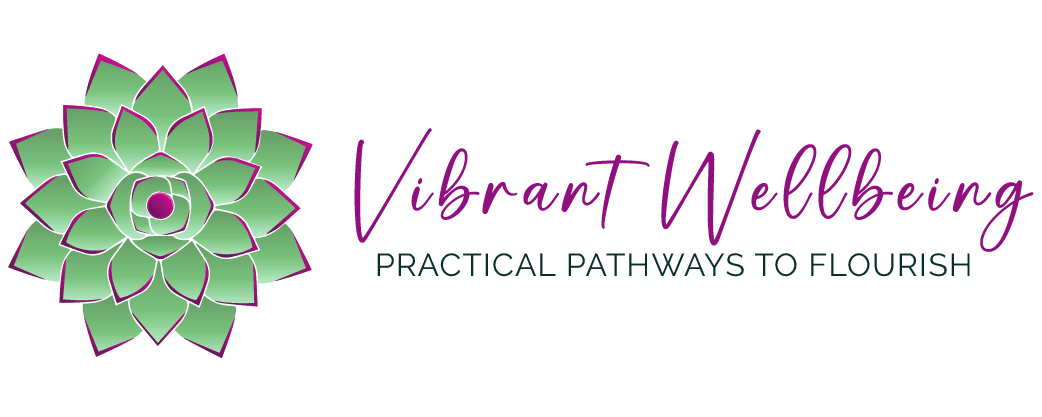You’d be surprised how many of my clients feel like they’re a fraud, and are constantly stressed that they’re going to be exposed. (Or maybe you’re not surprised at all, because you feel like an imposter too …)
Not just at work, either – people feel like imposters in their personal lives as well.
They worry that they’re not really a nice person or a good parent or a capable manager, or that even though their friends love them, that somehow, one day, the friends will realise that they’re actually not as smart/funny/nice as they seem. Or that their achievements are just a fluke and one day everyone will realise it.
It’s REALLY stressful when you’re always afraid of being caught out.
What I’d like to share with you are some simple ways to manage that fear of being exposed as a fraud.
Should you fake it till you make it?
No! I’m not talking about how to fake it till you make it, because that’s just another trick, so to speak, and will make you feel even more like an imposter.
In this blog, I want to talk about ways you can handle the anxiety you feel when you put yourself out there in some way, which then makes you feel exposed. I’ll also show you how to distinguish the stress which results from the scary state of waiting to be exposed as an imposter, and the normal nervousness that comes with being a real live human being who’s not perfect.
Because – spoiler alert! – being authentic and genuine is not the same as having to be perfect!
Sound familiar?
One of the main causes of anxiety that I see in my clients is the fear that people will think they’re boring, stupid, arrogant or incompetent.
But when you understand how to handle these feelings, then you’re going to be able to do things with ease – and what’s more, you’ll feel it become more and more natural over time. And even if you’re having a rough patch for some reason, and the old doubts and anxiety raise their heads again, you’ll be able to look those negative feelings in the eye and be in control.
The tips I’m going to share with you will help you handle your fears and anxiety, and let you be authentic – in other words, you’ll be able to be genuine and not feel like a fraud who’s going to get caught out.
It means you’ll be able to speak up calmly in meetings. Or if there’s a function at your child’s school where you don’t know the other parents, you’ll be able to turn up and chat with people without feeling sweaty and panicky. And neighbour’s BBQ or your school reunion won’t seem like walking into the lion’s den anymore. You’ll be able to enjoy things more instead of avoiding situations or feeling on edge the whole time.
So what’s going on here?
We all experience stress. It’s a normal part of life, and the Stress Response (also known as Fight or Flight or Freeze) is a normal physiological response to danger.
The stress response is designed to keep us safe. Say, for example, you’re walking home at night and hear footsteps coming up behind you. The stress response will kick in so that you can fight if you’re attacked, or run away. The Freeze part is useful too – most mammals freeze for a second while they assess whether to run or fight.
The Stress Response is really important – it’s designed to keep us safe and protect us from danger, whether it’s real or imagined. Suppose in the example above, the person following you calls out your name and you realise it’s your neighbour – your system recognises that you’re safe and so the stress response can be turned off.
But sometimes the stress response gets out of hand. Instead of being turned off or down when it’s not needed, it’s stay on high alert and you become hypervigilant.
Lots of things activate the stress response – not just actual physical danger like a big dog jumping out at you, or another car nearly swerving into you.
The stress response gets triggered by our thoughts as well.
Changes or new situations in our lives all mean we’re about to face the unknown which could, potentially, include risks or danger.
So it’s natural that we feel a bit anxious or nervous because our brains are preparing us to be alert so we can deal with the new ‘danger’.
But what we often do is get so stressed about the new scenario, like meeting new people at a friend’s BBQ, or having to give a report at work, that we trigger the stress response to high alert, and it feels like the situation is life or death.
Not all stress is bad
There’s such a thing as good stress and it’s called Eustress. It’s defined as a positive form of stress which has a beneficial effect on health, motivation, performance, and emotional well-being.
The positive stress you feel when facing new things or people is completely normal. It’s the body and mind’s way of preparing you before you try something new or take a bit of a risk.
That positive nervous excitement can feel very similar to ‘bad stress’ so it’s easy to confuse them.
It’s the feeling of butterflies in your stomach and a feeling of normal but manageable nerves. It’s the feeling we get when we’re excited and looking forward to something, like going on an adventurous holiday or waiting for someone you love who you haven’t seen for a long time.
Along with that nervous excitement (which feels similar to anxious stress), there can be some reasonable concerns or fears – what if I’m not fit enough to trek to the top with the other hikers? What if I slow everyone else up and look silly? What if the friend I’m looking forward to seeing again doesn’t feel the same about me anymore and thinks I’m boring now?
What if … what if …. what if ….?
How to handle those feelings
So what do we do when we feel afraid? We want to avoid it and run away – very sensible if the thing we’re scared of is a mugger or a fierce dog! There aren’t likely to be any benefits in sticking around in those situations!
But what about if the situation we’re afraid of also has potentially good things that could come out of it?
What if going to the BBQ and making conversation with people you don’t know could mean you make a connection with someone and have a great conversation or a few laughs or even perhaps become a new friend? What if going on the difficult trek not only challenges you, but also gives you a sense of satisfaction or accomplishment?
What if the things we’re afraid of actually help us grow to become the person we’d like to be, with human failing perhaps, but who is living and doing and being real, and able to get up again if if we stumble at times?
Then we’re not frauds or fakes or imposters. We’re brave and authentic. We’re not pretending to be perfect or have everything under control, but we’re doing the best we can and that’s no small thing.
So how do we step out of the old patten of anxiety and fear of getting caught out, and step into being someone who’s prepared to be real, despite the stress response doing its thing?!
Things you can do
There are 3 strategies I’m going to share with you – you can use them separately and they’re all effective, but I’ve found that they really pack a punch in combination. Either way, you’ll start to notice positive changes quite quickly, as well as long-term, cumulative benefits.
1. Self-awareness vs Self-criticism
Toxic self-criticism plays a big part in low self-esteem and imposter syndrome.
There are all sorts of things going through our minds which constantly colour our responses to, and ability to deal with, daily life. Most of these thoughts, feelings and reactions are habitual and automatic. It’s important to take a curious stance about yourself, rather than a judgemental one, as you observe your own behaviours and reactions.
Gentle self-awareness (as opposed to self-criticism) is essential for stress reduction and improved wellbeing. Mindful self-awareness allows you to respond instead of react.
An easy way to start being kinder to yourself is this free subliminal MP3 audio Be Kinder to Yourself
2. Mindful Meditation
Research shows that regular, short Mindful Meditation exercises reduce stress and reactivity to stress – in other words, they turn down the Stress Response so that you’re not on high alert all the time which in turn makes anxiety much more manageable.
3. PSYCH-K ®
This is a safe and simple tool that gets rid of limiting subconscious beliefs that hold you back. You can read more about PSYCH-K® here.
You don’t have to live with feeling like an imposter – there are so many powerful strategies and tools to help you feel confident and live your life more fully!


0 Comments